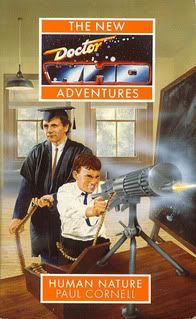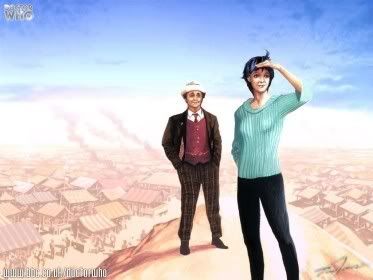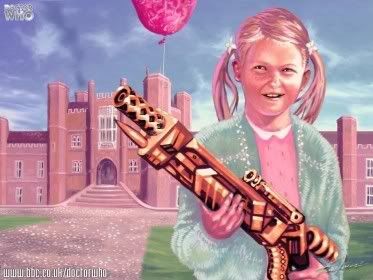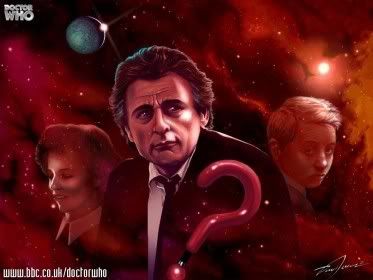
Human Nature by Paul Cornell
In Brief: The Doctor decides he wants to learn what it means to be human and becomes School-Teacher John Smith in 1913 England. Challenges faced include unruly school-boys, an alien family who want his DNA and falling in love.
If this seems familiar it's because the book was turned into a 2-part TV-story in 2007.
It's almost impossible to judge Human Nature now on its own terms since we now have a version shown on TV with the 10th-Doctor and Martha (remember her?) replacing the 7th and Bernice.

However there are more than a few differences between the 1995 book and 2007 TV-episodes, some drastic and some subtle. Let me show you them:
-The Doctor here becomes human not to hide from The Family but instead of his own volition in order to learn and understand Bernice’s grief at losing Guy at the end of Sanctuary.
-The Doctor uses a red pod bought from an alien market to become human rather than a Tardis stop-watch.
-Benny pretends to be “John Smith’s” niece rather than maid.
-The Family are given the name of Aubertides and don’t take over people’s bodies but instead arrive as is through a time tunnel. They are chasing The Doctor after learning of his buying the pod.
-Joan has a cat named Wolsey that she gives to The Doctor at the end of the book.
-There are several additional characters not seen in the TV version, Alexander the museum-curator, Constance the Sufferagette, etc.
-No stupid scarecrow-soldiers.
-The school blows up.
-I didn’t have to look at that weird-faced kid who was in “love, actually…”
Overall though, I don’t think I can actually say that either the book or novel trumps the other. Both are real highlights of the Doctor Who lexicon, and it’s obvious why the decision was made to take this story from the page to (small) screen. Although I did find that I preferred the novel's approach to why The Doctor became human here, as it allowed for a more character-based basis for the book and also helped to make The Doctor feel more alien when he eventually “returned”. Of course having the 7th-Doctor suddenly being romantic was a bigger shift for the character in 1995 than what we got in 2007 considering the 10th’s “unrequited love” aspect of his relationship with Rose. The Doctor pre-2005 was an almost entirely asexual being, so the change in Human Nature is much more pronounced.
However I will give kudos to the TV-version for its version of Joan, Smith/The Doctor’s love interest. Partly through being a more strongly written version of the character but mainly thanks to Jessica Hynes’ performance TV-Joan was one of the more memorable characters to come out of Doctor Who ever. The book version unfortunately pales a bit in comparison and feels a bit bland. Also the novel’s final scene between The Doctor and Joan lacks the force of the televised version.
Joan’s on-screen accusatory “on a whim” has an impact greater than a combined army of Daleks and Weeping Angels ever could.

But I guess I should try to extract myself from media comparison and talk about just the book. As usual Paul Cornell’s writing style is fantastic and things move along at a great pace. After this drudge of Sanctuary this was a welcome experience. Benny is never better than when being written by her “creator” and here again takes centre-stage. I do hope that at some point the poor woman will be allowed to actually appear on TV rather than remain The Greatest Companion Who Never Was.
Of course considering that her main competition is a talking penguin there’s not a lot of competition for that title.
However, one aspect of the book which came as quite a surprise was the violence involved. The book has a much higher body count than the TV-version, with several of the students at the boys’ school being gunned down or killed in a giant explosion (that also blows up the school). Also, rather than the more “fairy tale” end that The Family meets in “The Family of Blood” here the Aubergines are almost completely killed off in various nasty ways by the end.

Human Nature is definitely one of the best books in the series so far, although it’s not envelope-pushing enough to be called great (unlike Cornell’s earlier Timewyrm: Revelation). While in some ways it’s been out-classed by the TV version (which still IMHO is probably the best post-2005 story we’ve had) the fact that it was good enough to actually be filmed speaks volumes. If anyone out there does want to sample one of the New Adventures this is the place to do it.
No comments:
Post a Comment